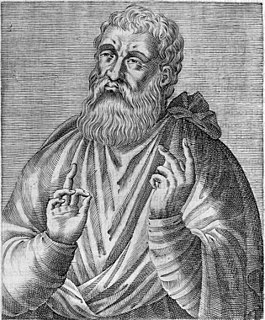A Quote by C. S. Lewis
The Christian "doctrines" are translations into our concepts and ideas of that which God has already expressed in language more adequate, namely the actual incarnation, crucifixion, and resurrection
Related Quotes
Apart from it, the incarnation and the ministry would lose all their significance, the crucifixion would be but a martyrdom, and the cross a symbol of the victory of death over life. By the Resurrection it was that the Crucified One was "declared to be the Son of God with power," the great truth on which the Christian's faith is founded, and to which his hope is anchored. That Christ died for our sins is the Gospel of the Christian religion regarded as a human cult. The Gospel of Christianity goes on to declare "That He rose again the third day according to the Scriptures"
"Gospel preachers nowadays preach the gospel of the Crucifixion, the Apostles preached the gospel of the Resurrection as well. The Crucifixion loses its meaning without the Resurrection. Without the Resurrection the death of Christ was only the heroic death of a noble martyr; with the Resurrection it is the atoning death the Son of God. It shows that death to be of sufficient value to cover our sins, for it was the sacrifice of the Son of God."
If we are in Christ the whole basis of our goings is God, not conceptions of God, not ideas of God, but God Himself. We do not need any more ideas about God, the world is full of ideas about God, they are all worthless, because the ideas of God in anyone’s head are of no more use than our own ideas. What we need is a real God, not more ideas about Him.
For I choose to follow not men or men's doctrines, but God and the doctrines [delivered] by Him. For if you have fallen in with some who are called Christians, but who do not admit this [truth], and venture to blaspheme the God of Abraham, and the God of Isaac, and the God of Jacob; who say there is no resurrection of the dead, and that their souls, when they die, are taken to heaven; do not imagine that they are Christians
We impose our modern worldview on the Bible to make it conform to our intellectual happy place. But we deceive ourselves into thinking this works or is legitimate. We fail to realize that the supernatural things we want to avoid are no more supernatural (or "weird") than the things that define the Christian faith. What's so "normal" about the virgin birth, the Trinity, the deity of Christ, the bodily resurrection of Christ, the hypostatic union of the incarnation (Jesus was 100% God and 100% man)?
The continually progressive change to which the meaning of words is subject, the want of a universal language which renders translation necessary, the errors to which translations are again subject, the mistakes of copyists and printers, together with the possibility of willful alteration, are themselves evidences that human language, whether in speech or print, cannot be the vehicle of the Word of God.
Is a Christian- one who communicates daily with the Creator- to divorce himself from the things God created and intended man to have, and which demonstrate the fact that man has been made in the image of God? In other words, are we who have been made in the image of our creator to be less creative than those who do not know the Creator? The Christian should have more vividly expressed creativity in his daily life.
Religion is much more than language, but to be Christian does mean speaking Christian for most people. The language many of us use has contributed to the crisis in Christianity in North America. Traditional Christian language is becoming less familiar to millions of people. The language is frequently misunderstood by people.





































